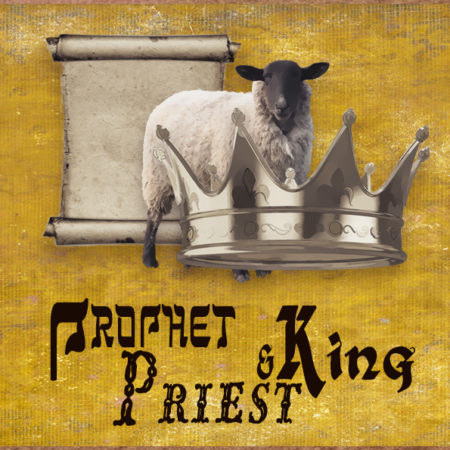As we have seen over the past few weeks, the original pattern of the Threefold Office was found in Genesis 1-2. We also saw that the prophetic, priestly, and kingly roles God intended for mankind at the beginning applied to Israel when they were constituted as a nation in Exod. 19, with the instructions repeated to them in Deuteronomy as they were about to the enter the Promised Land. Though Israel would fail as a nation to honor God in these ways, He had structured their society in such a way as to call them to faithfulness to His covenant by dividing the responsibilities of the Threefold Office within the nation.
This week we will focus on the Old Testament office of prophet. An OT prophet was not merely someone who predicted the future, though they did speak of certain events before they occurred. Biblical Prophecy, however, is better understood in terms of the promises of God. The OT prophet received the promises of God and communicated them to His people in order to encourage, instruct, and exhort them to be faithful to Him. This role was vital for the people of God living in a fallen world where their own hearts were prone to seek to worship those things which were not of God and who were surrounded by idolatrous, pagan peoples.
Moses is considered to be the fountainhead of OT prophecy, being foremost among the prophets. Before he died, he left instructions to the people regarding the future of the prophetic office (Deut. 18:15-22). It is here that Israel is instructed to listen to the words of the prophet; for they are not his words but the words of the Lord. It was vital for Israel to understand this because the OT prophet was someone who was to accurately and authoritatively communicate God’s Word to His people. He would also point out the sin of the people and call them to repent. Finally, he was someone who would proclaim good news to the people, promising them that God had not forgotten them and that in the future He would bring about restoration and redemption.
While all of the OT prophets are significant, Isaiah is perhaps the most instructive to us in terms of understanding the life and mission of an OT prophet. In Isa. 6 we read of his encounter with God and his recognition of his own sinfulness when faced with the holiness of God. The Lord then provides the means by which Isaiah is cleansed and his sins are forgiven. It is then that the prophet responds to the call of God and is commissioned to proclaim God’s Word to His people.
Though Moses and Isaiah played a significant role in proclaiming God’s Word to His people, their own sin and limitations meant that a better prophet was needed who could fully reveal God. This prophet would be a great leader like Moses but would share the mission of Isaiah to proclaim both good news as well as judgment. In Acts 3, Peter, preaching in the Temple, proclaimed to those listening that Jesus was the Prophet anticipated by Moses. He then went on to say that all of the prophets had anticipated the last days when God would speak to His people in a final and complete way and that it was through Christ that this communication had come.
Join us this Sunday as we come together to hear the Word of the Lord proclaimed to us in Scripture. It is only in this way that we can truly know God, who speaks most clearly to us through the person and work of His Son!
Soli Deo Gloria.
-Thomas

